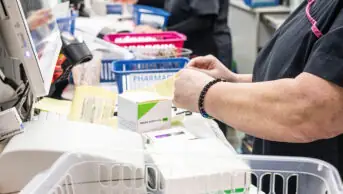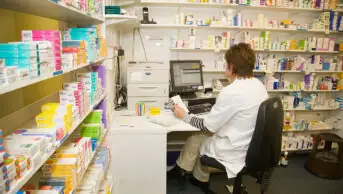
Shutterstock.com
Three Scottish health boards are trialling a new role designed to encourage more people to become designated prescribing practitioners (DPPs).
DPPs supervise independent prescribing trainees during their 90 hours of ‘experiential learning’, which forms part of their training.
Anyone wishing to train as an independent prescriber (IP) must first identify a suitable DPP.
However, there are concerns that there are not currently enough people able to take on the DPP role, because it requires them to be a prescriber in a patient-facing role, with at least three years’ recent prescribing experience. In addition, the majority of DPPs do the role without any backfill payment for their time.
As a result, the new role of ‘designated prescribing supervisor’ (DPS) is now being tested in NHS Greater Glasgow and Clyde, NHS Lothian and NHS Lanarkshire.
The role has been described by Community Pharmacy Scotland (CPS) as a “DPP-lite role that supports the [IP] trainee and the DPP while building confidence in the supervisory role as it relates to independent prescribing”.
A DPS must be a current prescriber but, unlike DPPs, a DPS needs only six months of prescribing experience. They will work with the DPP to support the IP trainee and help supervise the trainee during their experiential learning.
According to an information pack issued by the three boards involved in the pilot, undertaking the DPS role offers an opportunity to upskill and work towards becoming a DPP.
Adam Osprey, policy and development pharmacist at CPS, said: “Until current professional guidance and regulation changes, each independent prescriber requires a named DPP with three years’ prescribing practice under their belt.
“All indicators suggest that we are not going to have enough DPPs to support the demand over the coming years, so we need to look at what can safely change about these requirements — we would like to see the three-year minimum time in practice replaced with an assessment of whether a prospective DPP has the requisite skills and abilities to fulfil the role of a DPP.
“While we make the case for this change, we must simultaneously encourage people to consider becoming a DPP, and support them in that journey. By listening to feedback from active IPs, the education and training pharmacists leading this work have identified that the role of the DPP is too daunting for some — hence the development of a designated prescribing supervisor role, which we at CPS fully support.
“We are also undertaking our own work looking at how feasible the supervision of more than one trainee IP is, with results expected next year.”


